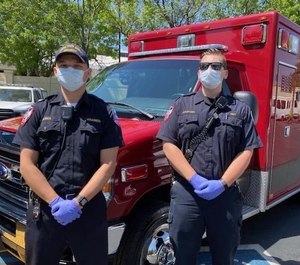
Officials say the Contra Costa County pilot program will be the first to have EMS providers start buprenorphine treatment in the ambulance
By Laura French
BERKELEY, Calif. — A California county has received a two-year, $450,000 grant to evaluate a pilot program that partners EMS providers with outreach workers to improve care for those with opioid use disorder (OUD).
The CARESTAR Foundation awarded the grant for Contra Costa County's CA Bridge Program at the Public Health Institute, which formed an alliance between the California Department of Public Health, Contra Costa County EMS, American Medical Response, the Contra Costa County Department of Public Health and UCLA to tackle the opioid crisis.
"This is the first county-wide pilot in California where EMS responders start buprenorphine treatment for OUD directly from the ambulance, and then outreach workers connect with patients within the community to provide longer-term resources," said CA Bridge EMS Director Dr. Gene Hern. "Improvement in this area of care is critical right now, given that the number of deadly opioid overdoses in many California counties is rising drastically."
In Contra Costa specifically, deaths from overdose increased 51.9% between 2017 and 2018, according to the Public Health Institute.
Hern, an emergency physician, added that opioid overdoses and COVID-19 are a "dual crisis" in the community and that integrating EMS into longterm care for OUD patients is "an essential next step" in combatting the crisis.
"Many people found overdosed are reversed with naloxone only to go out and use again. It is not uncommon for a person to overdose multiple times in a single day. We think this is a tragedy and a failure," Hern said. "In the ER, we have seen that by implementing a comprehensive protocol of treatment for post-overdose survivors, we can stop this wasteful and deadly pattern of overdose. By extending this protocol to EMS, we can better reach marginalized communities, where most patients who die from overdoses tend to be, and bring more equitable access to modern, evidence-based treatments that work."
CARESTAR CEO Tanir Ami said that the grant fits squarely with CARESTAR's goals to strengthen partnerships and build knowledge in injury prevention, emergency response and trauma care.
"CARESTAR is fully engaged in systems improvement, and in realigning care provision to better fit the needs of all communities. We are opening the door to big conversations about providing the right care, at the right time, in the right place," Ami said. "We want to help create an emergency response system that is fully integrated, and that treats people in a unified and compassionate way."
Copyright © 2025 GovGrantsHelp.com. All rights reserved.
